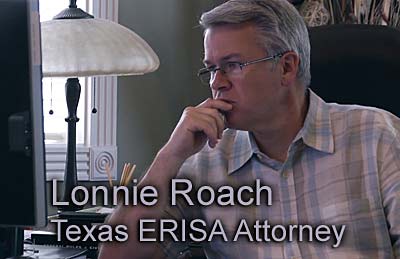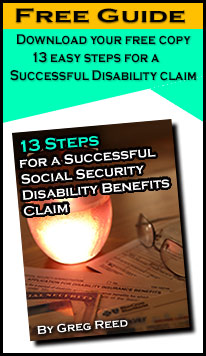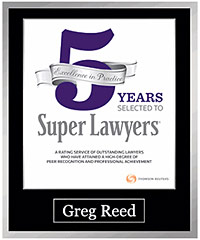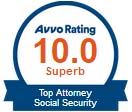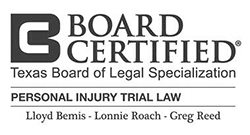Sleep Apnea and Qualifying for Disability Benefits
Can I get disability benefits if I am suffering from the effects of Sleep Apnea?
Author: Attorney Lonnie Roach
Updated: 1/26/2024
If you have sleep apnea and it has impacted your ability to work and hold a job, you may be eligible for Social Security Disability benefits, but because it is difficult to qualify, you should consider consulting a qualified disability attorney.
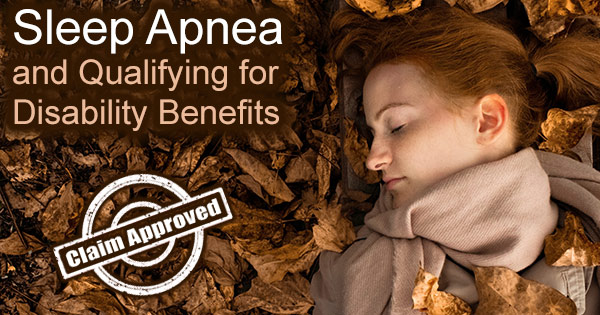
If you have sleep apnea and it has impacted your ability to work and hold a job, you may be eligible for Social Security Disability benefits, but because it is difficult to qualify, you should consider consulting a qualified disability attorney.
More than 18 million people in the United States are affected by sleep apnea.
Sleep apnea is an involuntary cessation of breathing while a person is asleep. The person is usually unaware of these occurrences which can have serious consequences like heart disease or falling asleep while driving.
No matter what type of sleep apnea a person has, they stop breathing for short periods of time during sleep.
When a person stops breathing, the brain and rest of the body do not get enough oxygen. These stoppages occur repeatedly, sometimes hundreds of times and often for one minute or longer. If untreated, sleep apnea can cause daytime fatigue, memory problems, weight gain and headaches. The condition can also adversely impact job performance and carries the risk of heart disease, diabetes, liver problems and auto accidents. Sleep apnea can affect anyone, even children, but men and people who are overweight are more at risk than others.
An individual affected by sleep apnea may not be aware they have stopped breathing while asleep and it may take someone watching them to notice; however, other symptoms may alert them to the condition.
- Sleepiness during the day
- Loud snoring
- Waking up with a sore throat or a dry throat
- Morning headaches
- Frequent waking or insomnia
- Occasionally waking with a gasping sensation
- Sleepiness while driving
- Forgetfulness or mood changes
- Difficulty paying attention while awake
These or a combination of these symptoms can cause you to miss work and jeopardize your ability to maintain employment.
Treatment of sleep apnea combines the use of specially designed devices and home treatment.
The most common treatment is CPAP, Continuous Positive Airway Pressure. This treatment involves wearing a mask that is connected to a machine that delivers a constant flow of air to the nose, keeping the airways open so that the individual can breathe normally. Surgery may be recommended for patients with enlarged tonsils or a deviated septum.
Demonstrating that you are following your doctor’s treatment plan is an important part of qualifying for disability benefits.
Sleep Apnea and Qualifying for Disability Benefits.
Sleep apnea does not have a specific listing in Social Security’s Blue, but it is mentioned under Section 3.00 Respiratory Disorders.
What are sleep-related breathing disorders and how do we evaluate them?
- Sleep-related breathing disorders (for example, sleep apnea) are characterized by transient episodes of interrupted breathing during sleep, which disrupt normal sleep patterns. Prolonged episodes can result in disorders such as hypoxemia (low blood oxygen) and pulmonary vasoconstriction (restricted blood flow in pulmonary blood vessels). Over time, these disorders may lead to chronic pulmonary hypertension or other complications.
- We evaluate the complications of sleep-related breathing disorders under the listings in the affected body system(s). For example, we evaluate chronic pulmonary hypertension due to any cause under 3.09; chronic heart failure under 4.02; and disturbances in mood, cognition, and behavior under 12.02 or another appropriate mental disorders listing. We will not purchase polysomnography (sleep study).
Most applicants will find it difficult to qualify for Social Security Disability benefits automatically with a diagnosis of sleep apnea unless they can prove their disability is related to heart failure, chronic pulmonary hypertension, or a neurocognitive disorder.
If you have sleep apnea, but your disability does not match one of Social Security’s impairment listings, you may still be eligible for Social Security Disability benefits if you have another impairment; for example, high blood pressure or diabetes. Applicants often have more than one illness or injury that prevents them from working full time. By itself one disorder may not meet the requirements of an impairment as stated in Social Security’s Blue Book. However, if an applicant has multiple medical conditions, Social Security must consider how those health issues, combined together, limit an applicant’s ability to hold a job and perform necessary daily tasks. In any case, you must have an actual diagnosis confirmed by a polysomnogram and statements by medical providers detailing your capabilities and limitations. For example, because of sleepiness during the day, you may not be able to operate machinery.
Social Security will also evaluate how your limitations affect your ability to work.
This is called a medical-vocational allowance and this takes into account whether or not you are able to drive, your age, and level of education. They will test your “residual functional capacity” (RFC) which is a measure of how the disease affects your everyday job performance. The fatigue associated with sleep apnea, particularly chronic or severe sleep apnea, can lead to physical and cognitive impairment.
Once Social Security determines the limitations caused by your condition, they will employ a vocational expert to assess whether a person with these limitations is employable.
Most vocational experts will find a person to be unemployable if their condition or the treatment rendered for the condition causes the person to regularly be absent two or more days a month or be “off-task” 15% or more of the workday.
If you are 55 or older or have another medical condition you may get approval.
Social Security follows a set of rules to determine when the agency expects an applicant to learn a new job.
Applicants who are 55 or older often fall under a grid rule, which means they are not expected to learn a new job. For example, a 55-year-old applicant with no transferable skills might be found disabled. If you can’t go back to your old job, and you don’t have the skills to learn a new one, Social Security will likely grant you disability benefits.
Social Security also has basic financial requirements.
Before you are eligible for Social Security disability benefits, you must satisfy some basic financial requirements.
You must: 1) have a disability that has lasted or is expected to last 12 months; and 2) you must have worked in a job where you paid Social Security taxes long enough and recently enough; and 3) you must not earn more than Substantial Gainful Activity (SGA), which is $1,550 per month in 2024 for nonblind applicants and $2,590 per month for blind applicants.
What if I don’t qualify for SSDI?
If you haven’t worked long enough to earn enough work credits, or if you earn too much income, you may be eligible for disability benefits through another Social Security program, such as Supplemental Security Income (SSI), or from a long-term disability insurance plan through your employer or a privately purchased policy.
SSI is a program that pays monthly benefits to people with limited income and resources who are disabled, blind, or age 65 or older. SSI is based on income instead of work credits, and is financed by general funds of the U.S. Treasury.
How do I file for Social Security Disability benefits?
You can apply for Social Security Disability benefits online, over the phone, or in person at your local Social Security Administration office.
If your initial application is denied, don’t be discouraged. Approximately 65% of initial applications are denied, but you will have the opportunity to appeal.
There are four steps to the Social Security appeal process:
- File a Request for Reconsideration with the Social Security Administration to completely review the case.
- If you don’t agree with SSA’s response to your Request for Reconsideration, you can request a hearing before an Administrative Law Judge (ALJ). ALJs are attorneys who work for the Social Security Administration; they review SSDI cases and either uphold or overturn decisions to deny SSDI benefits. If you are not represented by an attorney at this point, now is the time to obtain legal counsel. This is a critical point in the process and will raise your chance for success.
- If an ALJ does not grant your claim, you can request that the Appeals Council review your case.
- Federal Court review. The final step in the appeal process is filing suit in U.S. District Court.
If you have sleep apnea and it has impacted your ability to work and hold a job, you may be eligible for Social Security Disability benefits, but because it is difficult to qualify, you should consider consulting a qualified disability attorney.
Disability benefits are an important source of income for those who are unable to work. If you are not able to work due to accident or illness, you may be eligible for Social Security Disability or Long Term Disability benefits. If you have applied for benefits and been denied, contact the attorneys at Bemis, Roach and Reed for a free consultation. Call 512-454-4000 and get help NOW.
Neurocognitive Disorder and Disability benefits
Can you get Disability for High Blood Pressure?
How to qualify for disability

Your Free Initial Consultation
At Bemis, Roach and Reed, if we can't help you, we will try to find the right attorneys for you.
We offer each of our prospective clients a free no obligation one hour phone or office consultation to see if we can help you and if you are comfortable with us. We know how difficult a time like this can be and how hard the decisions are. If we can be of assistance to you and help you find a solution to your issue we will even if that means referring you to another attorney.
Or simply call
512-454-4000
to schedule your
Free Consultation
Let's get you Started:
If you could provide us with some basic information about your claim we will get right back with you with a free case evaluation and schedule your Free Consultation Today.

